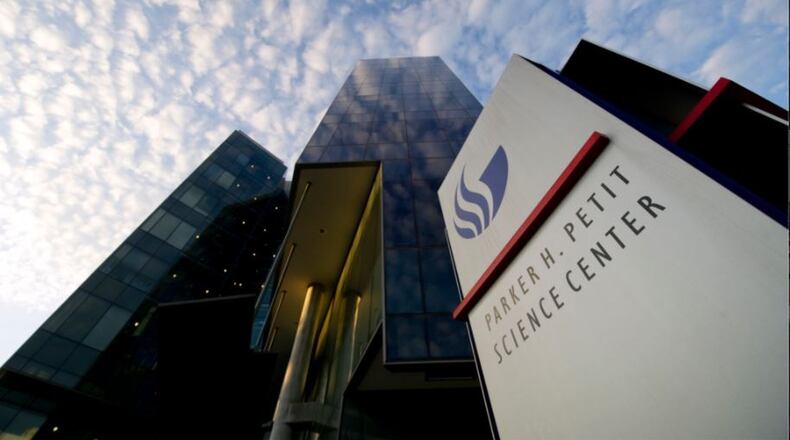The chancellor of the University System of Georgia warned Tuesday that the economic fallout from the coronavirus pandemic will create serious financial challenges for the state’s 26 public colleges and universities.
That did not stop Georgia Chancellor Steve Wrigley from recommending and the Board of Regents from approving a tuition freeze for next year. That means students will pay the same tuition in the 2020-2021 academic year as they do now.
But Wrigley said the system is already confronting new and stark economic realities.
Credit: David Caselli
Credit: David Caselli
In an update to the regents, Wrigley said financial losses are accumulating from an abrupt systemwide closing of campuses that triggered $200 million in reimbursements in student housing and dining hall costs. That revenue loss will climb to $340 million to $350 million through the summer as other funding sources dry up, including income from canceled camps, professional learning programs, study abroad courses and other events, he said.
Around the country, the unexpected expenses and lost revenue due to the pandemic are forcing colleges to resort to measures such as hiring freezes, pay reductions and furloughs.
In a message to students and staff, Mark Becker, president of Georgia State University, the state’s largest, warned of tough times ahead.
“… Many of our students are now unemployed and may find it difficult, or impossible, to continue their educations. Second, I expect that the state is experiencing a decline in revenues that likely will result in a major reduction in funding for all of public higher education, including Georgia State,” he said. “… We do not yet know the extent of the impact these factors will have on enrollment and funding, nor do we know the full extent to which the federal government will assist universities and states.”
Wrigley said the losses will be offset in part by a short-term infusion of $125 million the University System of Georgia will receive from the CARES Act, the $2 trillion federal coronavirus legislation providing financial relief to states, corporations, citizens and schools.
“It is still going to be a tough situation for them,” said Jennifer Lee, higher education policy analyst for the Georgia Budget & Policy Institute. “This is going to be a significant hit, although the federal money will help a little bit.”
Over the past 20 years, Georgia’s investment in higher education, adjusted for inflation, fell 35%, a decline accelerated by the 2008 recession that decimated state budgets everywhere. To cope with the recession, the University System of Georgia raised tuition, shifted health insurance costs to employees, let vacancies go unfilled, increased class size and relied more on part-time faculty, said Lee.
“It took 10 years to climb out of the hole from 2008. I think this economic situation will be at least as bad,” said Lee.
>> RELATED | Regents approve tuition freeze for Georgia public colleges for upcoming year
While a preemptive increase in tuition might appear prudent, Lee said, “They were put in a tough position; they wanted to be sensitive to the economic situations for students and families in Georgia. They did what they thought was the right thing to do — keep tuition flat but also be aware they are going to have some budget constraints the following year.”
“There will be economic and fiscal impacts on our campuses,” Wrigley told the regents. “We want to get on the other side of this thing in a strong position.”
About the Author
Keep Reading
The Latest
Featured





